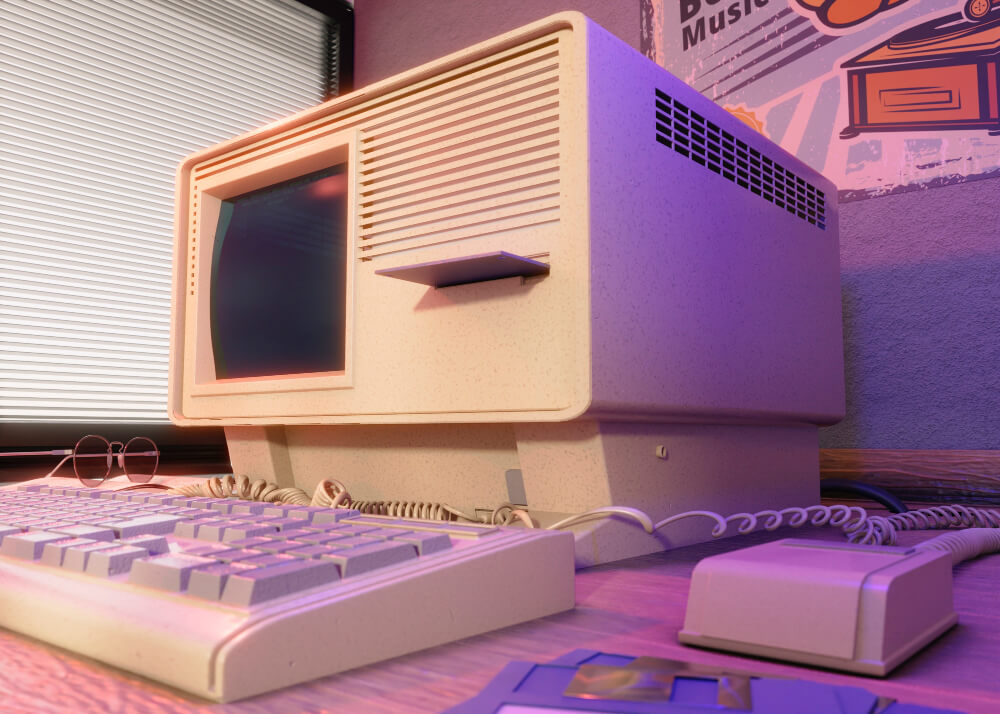Reasons to move away from legacy systems
By Team Arrk |
|
4 mins read |

There is a lot to be said for loyalty in life: but applying this loyalty to an outdated system could be holding your organisation back.
A new term has been coined – legacy systems – which refers to systems that have been operating in production for a long time. For many organisations, the services they offer are every bit as relevant now as they were when these systems were first purchased – but the problem is that this technology has often become obsolete. So organisations are faced with a difficult question: should we stick with our existing systems which do the critical jobs or should we spend money on newer systems that could carry out business operations more effectively?
Here we examine the advantages and disadvantages of legacy systems and why it might be time to move on.
The key questions to ask
Before establishing whether you should change your legacy systems or not, there are many key questions to ask:
- Are your current systems still offering anything for your business?
- How cost-effective is it to maintain these systems?
- Is there still sufficient support available for these systems?
- Is it possible to integrate the technology with system architecture?
- How accurate and complete is the documentation for these legacy systems and does it affect responsiveness and the speed of implementation?
Take, for example, legacy systems in banks. Generally with the banking system there are constantly new opportunities to introduce consumer products – or there may be a need to introduce competitive pricing in the short term. Without the ability to rapidly change your capabilities there is a serious chance that you will lose your share of the market.
Another example, linked to legacy systems and banking, are aspects such as credit card and identity fraud. With the rate of fraud constantly expanding, there is a general need to update systems on a regular basis to ensure that card holders and transactions are protected.
Overall, there are several outstanding reasons to replace a legacy system:
- Cost of maintenance | Maintaining a system may eventually become more expensive than replacing the hardware and software.
- Lack of understanding | Maintaining and expanding systems can be difficult because there is a lack of understanding about how they are run.
- Vulnerabilities | A lack of security patches within older systems may lead to vulnerabilities and this could put the system at risk of being compromised.
- Integration | New systems may be difficult to integrate with older technologies as there may not be sufficient demand for the integration technology.
So you have a choice: to stay with your existing legacy systems and believe that they can manage the expectations of consumers; or switching to newer systems that can hopefully help you develop your business case.
Other reasons to consider replacing a legacy system
So is it all about keeping up with the latest technology and potentially saving money by reducing maintenance costs? Or, are there more reasons to consider replacing legacy systems? Here are some you may not have considered:
- IT specialists retiring | IT workers are retiring and younger professionals are not training with bygone computer languages. This means that when these legacy professionals retire they can be impossible to replace – and to make matters worse, hardware makers and vendors are, in many cases, no longer offering support for their legacy products.
- Mobile growth on hold | Think about how you access the internet: do you always switch on a laptop/PC or do you prefer to use a mobile device such as a tablet or smart phone? Many legacy systems are not designed to deal with rapidly expanding mobile services; as well as being unable to offer the capabilities necessary to offer services on social networks and other platforms.
- Apps | Failing to keep up with IT trends is a significant black mark for any business. For example, if a competitor launches a new app and your company can’t do the same because it doesn’t have the back-end system capable of supporting such an outlet, then this could seriously affect your business.
So are there any reasons to hang on to a legacy system?
There are a handful of reasons why maintaining a legacy system may be worthwhile.
- Customised solutions | If you have built a highly customised system that has been adapted for your organisation or industry then replacing it could be detrimental. By moving to a generic software package you may be hurting your business’s competitive advantage.
- Problems with change | Whenever you implement change you’re likely to face some resistance. There are several business units that it will impact, including: project support and process changes. Even a successful legacy change can still face criticism.
- Modernisation may be better | It could be cheaper and more convenient to update your existing system rather than implement a wholesale change. Even if a legacy system has reached the end of its support it may be possible to negotiate a special support agreement.
Is there a middle ground?
If you’re thinking of replacing a legacy system, you may not need a complete rip out and replace. Instead, service-oriented architecture, known as SOA, will allow companies to introduce new software in stages. This incremental introduction could be seen as a lower risk strategy. However, in some cases a complete replacement of legacy systems may be a necessity: especially when the old system cannot support essential new technology.








